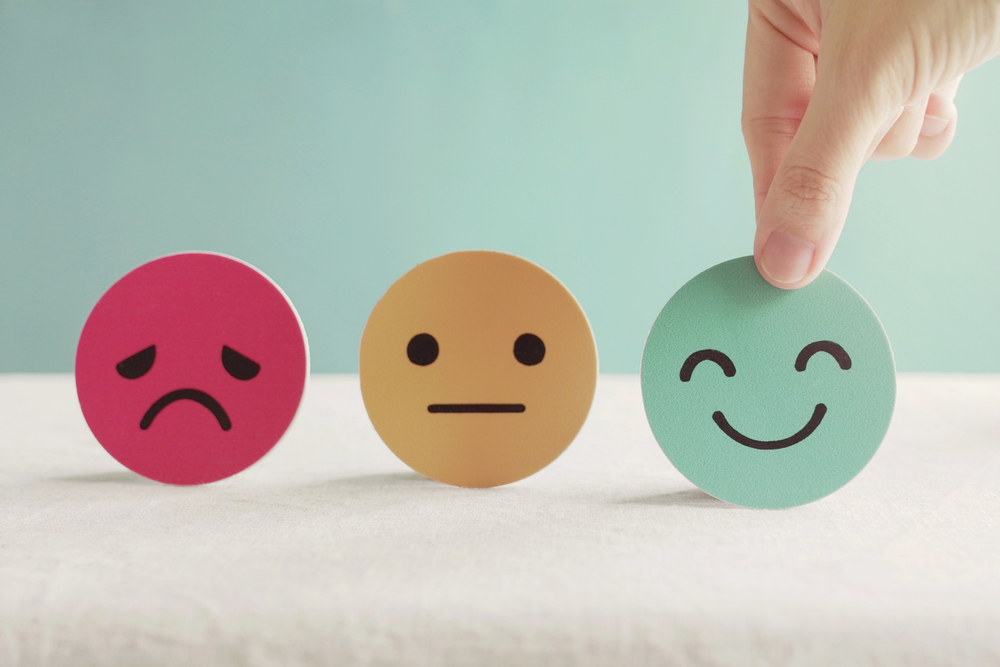
Improving mental health can seem like an insurmountable task, but it doesn’t have to be. With a few simple steps, anyone can make meaningful changes in their well-being in just 30 days. In this article, we’ll explore how to create a 30-day challenge tailored to your individual needs and goals. Ready to take the first step towards bettering your mental health? Let’s get started!
The benefits of improving mental health are abundant. Taking a proactive approach to well-being can help us lead happier, more fulfilling lives. From improved focus and clarity of thought to greater resilience and self-confidence, the effects of working on our mental health have far-reaching consequences. And with the right plan in place, those positive changes are easily within reach.
By following these simple steps, you’ll be well on your way toward creating a 30-day challenge that will help improve your mental health. So if you’re ready to start taking control of your well-being, read on!
Definition Of Mental Health
Mental health is an important aspect of overall health and well-being. It’s the state of being emotionally, socially, and psychologically balanced. Mental health can be impacted by a variety of factors, including stress, trauma, lifestyle choices, genetics, environment, and access to resources.
Good mental health can help us cope with life’s challenges and stresses. It allows us to form healthy relationships with others and make positive contributions to our communities. Having good mental health doesn’t guarantee that a person won’t experience emotional problems or have challenging times in life. Still, it does increase the likelihood that any difficulties will be less severe and more manageable.
It’s important to recognize that mental health isn’t static; it can change over time depending on circumstances. Taking proactive steps to maintain our mental health can lead to better outcomes for both short-term challenges as well as long-term goals.
Benefits Of Self-Care
Taking care of yourself is a vital part of improving your mental health. Self-care can range from small acts like taking a few minutes out of your day to relax to larger changes like creating a healthier lifestyle. By implementing some self-care practice into your daily routine, you can reap the benefits for your mental health.
Physical activities are a great way to practice self-care and help improve your mental health. Exercise releases endorphins, which regulate mood, reduce stress, and promote better sleep. You don’t have to do intense workouts – even simple activities such as walking or cycling can make a difference in how you feel. Eating healthy also helps with physical and mental well-being; try incorporating more fruits, vegetables, lean proteins and whole grains into your diet.
In addition to physical activities, it’s important to take time out of each day for yourself by doing something relaxing or enjoyable that brings you joy. This could be anything from reading a book or listening to music to drawing or writing in journal. Take advantage of this time to de-stress and focus on what makes you happy without worrying about the demands of everyday life. This type of self-care will help boost your mood and increase feelings of contentment and joy.
Practicing self-care regularly can improve your mental health in many ways – increased energy levels, improved sleep patterns, better concentration, reduced stress levels and improved overall well-being. So make sure that every day you take some time for yourself – it will pay off in the long run!
Setting Goals And Expectations
Setting goals and expectations is a key component of any 30-day challenge. This challenge is no exception. It’s important to set realistic goals and expectations for yourself so that you can measure your progress throughout the challenge.
To begin, think about what areas of your mental health need the most attention. Make a list of things you would like to improve in your life, such as self-esteem, productivity, or relationships. Then, narrow it down to three main goals you want to focus on over the next 30 days. These should be clear and measurable objectives so that you can track your progress and stay motivated.
Once you have identified your three main goals, set specific milestones for each one, and break them down into smaller achievable steps that will help get you closer to achieving them. Make sure to celebrate when you reach these milestones, as it will help keep up your motivation during the challenge. This will also provide evidence of how far you’ve come in improving your mental health throughout the course of this 30-day challenge!
Identifying Triggers And Stressors
One of the most important steps in improving your mental health is to identify triggers and stressors. Triggers are external events, situations or experiences that can cause emotional distress. Stressors are internal worries, fears, doubts and anxieties that can lead to intense emotional reactions. Identifying these triggers and stressors can help you develop strategies to cope with them more effectively.
The first step in identifying triggers and stressors is to pay attention to your emotions. Take note of when you experience depression, anxiety, anger, or fear, and ask yourself what situation was causing those feelings at the time. It could have been something as simple as a conversation with someone or as complex as a major life event like a job change or an illness. Try to recall the details of the situation so you can isolate what caused the emotion.
Once you have identified potential triggers and stressors, take some time to reflect on them. Ask yourself if there are any patterns – is there something that consistently brings up negative emotions for you? Is there anything you can do differently in those situations? Having this understanding will allow you to develop better coping strategies for managing difficult emotions in the future. With this awareness, you will be able to build resilience and take proactive steps towards improving your mental health.
Strategies To Manage Stress
Now that you have identified your triggers and stressors, it is time to determine strategies to manage your stress. The first step is to become aware of the signs of stress and recognize when they are present. This can be done by monitoring your physical, mental, and emotional responses to stressors. Once you have identified the signs of stress, you can begin to develop strategies for managing it.
Relaxation techniques are one of the most effective ways to cope with stressful situations. Breathing exercises, yoga, mindfulness meditation, and progressive muscle relaxation are all great methods for reducing anxiety and calming the body and mind. Physical activity such as walking or running can also help reduce mental tension.
It is also important to practice self-care by getting adequate rest and eating a balanced diet. Taking breaks throughout the day and setting realistic goals will help maintain healthy levels of stress. Engaging in activities that bring joy, such as listening to music or reading, can also be beneficial for reducing stress levels.
By recognizing how stress manifests in our bodies and minds, we can develop effective coping mechanisms that ultimately improve mental health over time.
Nutritional Habits For Wellbeing
Nutritional habits play an integral role in our mental health. Our bodies need the right nutrients to function properly, and our brains are no exception. Eating a healthy, balanced diet can help us feel energized, happy, and productive. It can also help to reduce stress and anxiety levels.
The most important dietary element for good mental health is essential fatty acids (EFAs). These are found in oily fish, nuts, seeds, and avocados. EFAs support the production of hormones that regulate moods and emotions. Eating plenty of fresh fruits and vegetables is also beneficial as they contain antioxidants that protect cells from damage caused by free radicals.
Eating a balanced diet is key for maintaining good mental health. A combination of healthy fats, proteins, carbohydrates, vitamins and minerals will provide your body with the nutrients it needs to stay healthy. Avoiding processed food or junk food can also help to improve mental wellbeing as these generally contain high levels of sugar, which can have a negative effect on moods.
Exercise And Relaxation Techniques
Now that you have established healthy nutritional habits, it’s time to focus on physical activity and relaxation techniques. Exercise and relaxation are important components of a healthy lifestyle and can help improve your mental health.
Exercise is an excellent way to release energy, reduce stress, and improve overall well-being. Try to incorporate 30 minutes of physical activity into your daily routine. This could be going for a walk or jogging, swimming, yoga, or any other form of exercise you enjoy. Incorporating some physical activity into your day will help provide structure and make it easier to stick with the challenge.
In addition to exercise, focusing on relaxation techniques can help manage stress levels as well as improve sleep quality. Take time each day to practice breathing exercises or mindfulness meditation, which can be done anywhere in just a few minutes. Other activities like reading a book or listening to calming music can also be effective methods for reducing anxiety and improving concentration.
Take the next 30 days to incorporate these exercises and relaxation techniques into your daily routine to improve your mental health. With dedication and consistency, you will begin to experience positive changes in your mental and physical well-being by the end of the challenge.
Building A Support System
Creating a solid support system is essential to maintaining good mental health. It’s important to have people in your life who can listen when you need to talk, and offer advice or help if needed. Here are some tips for building a strong support system:
First, reach out and make connections. Even if it feels intimidating at first, finding someone you can connect with can be incredibly rewarding. Talk to family members, friends, coworkers or neighbors – anyone who might be able to provide emotional support. You could also join clubs or hobby groups where you can meet like-minded people.
Second, create a safe space for yourself online too. This includes finding blogs, websites, and social media accounts that provide helpful resources and advice related to mental health issues. It’s also important to establish boundaries for yourself online; remember that not everyone is supportive or kind on the internet!
Finally, don’t be afraid to seek professional help if needed. A therapist or counselor is trained to work with individuals on their mental health journey and provide the right kind of assistance in order to make progress. When looking for a therapist, research their qualifications and experience until you find one that feels the right fit for you.
Conclusion
Taking care of your mental health is essential; taking on a challenge like this can help you build healthier habits. It’s important to remember that small changes can have a big impact on your well-being. Taking the time to be mindful, practice self-care, and develop healthy habits can make a world of difference in how we feel each day.
It’s okay if you don’t manage to complete all 30 days – every step forward counts! The most important thing is that you’re making an effort to take care of yourself because, ultimately, that’s what matters the most.







